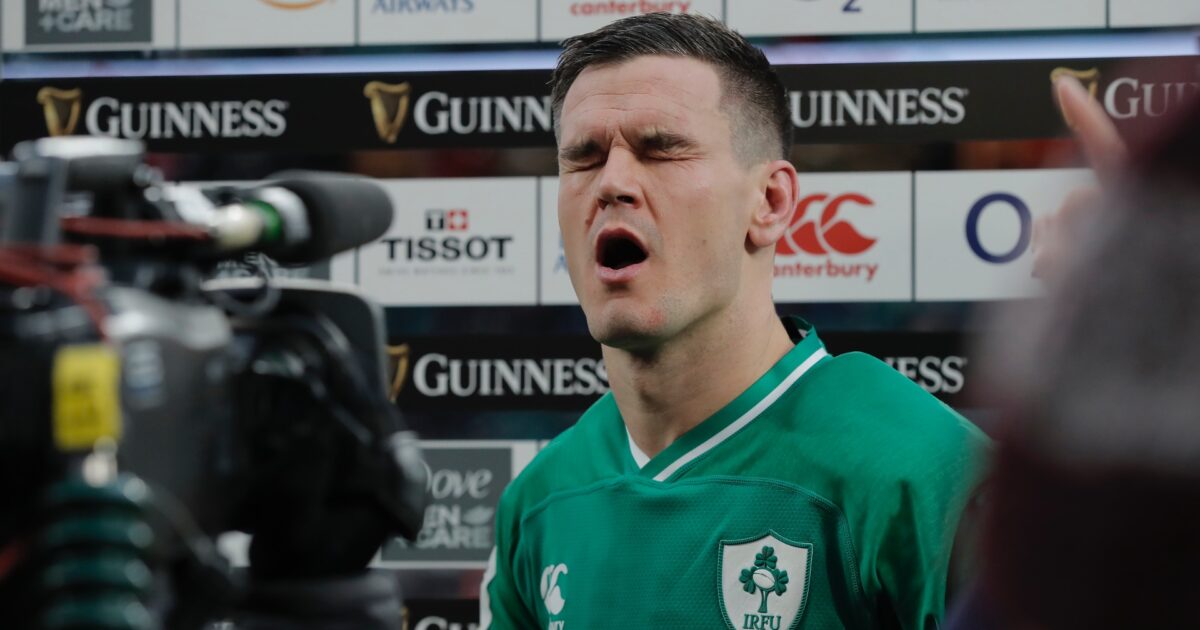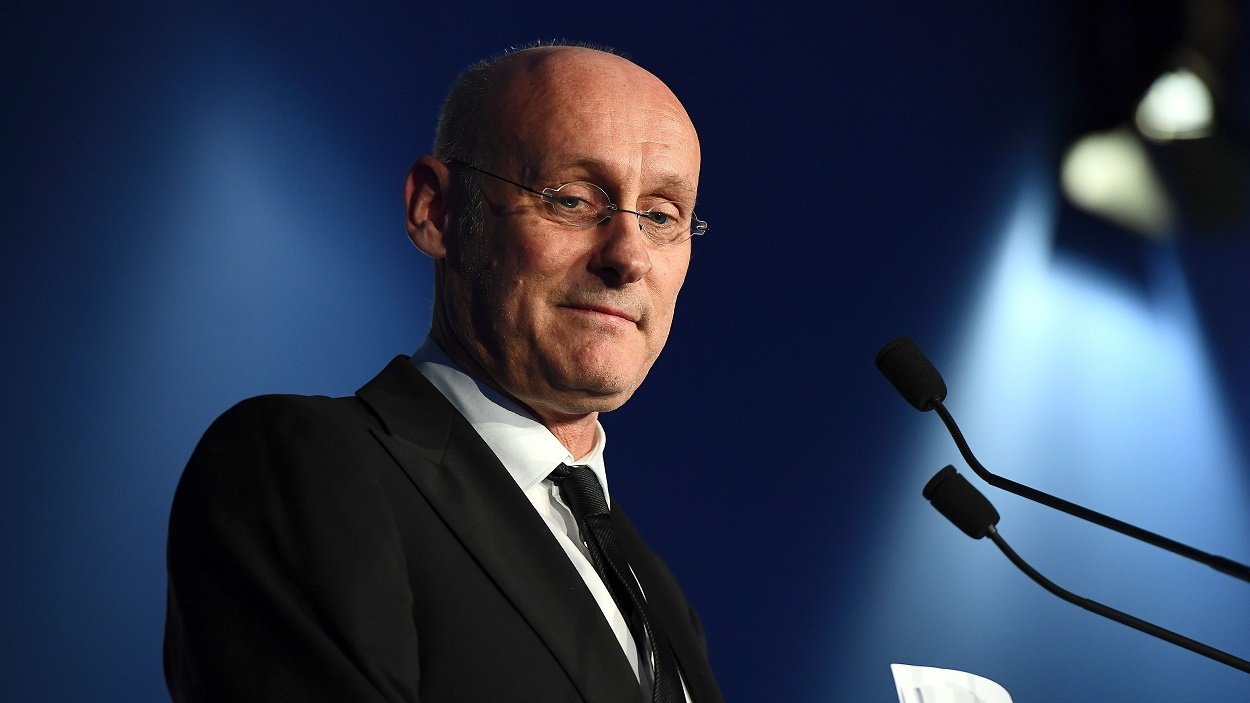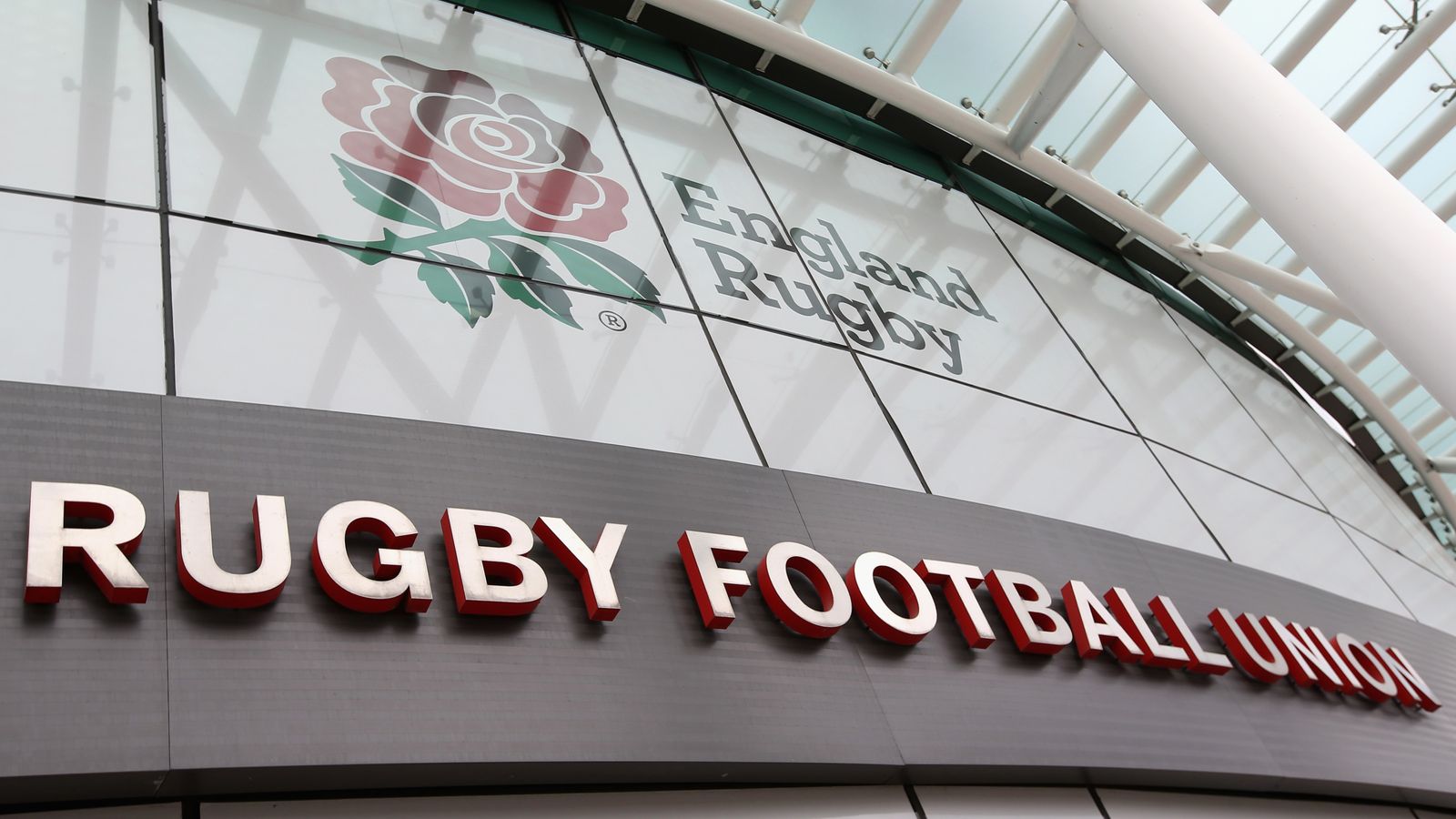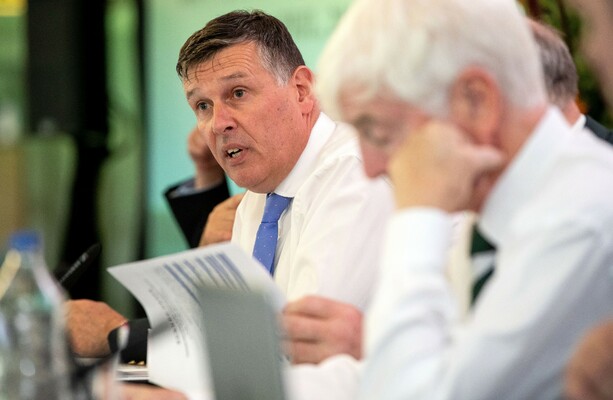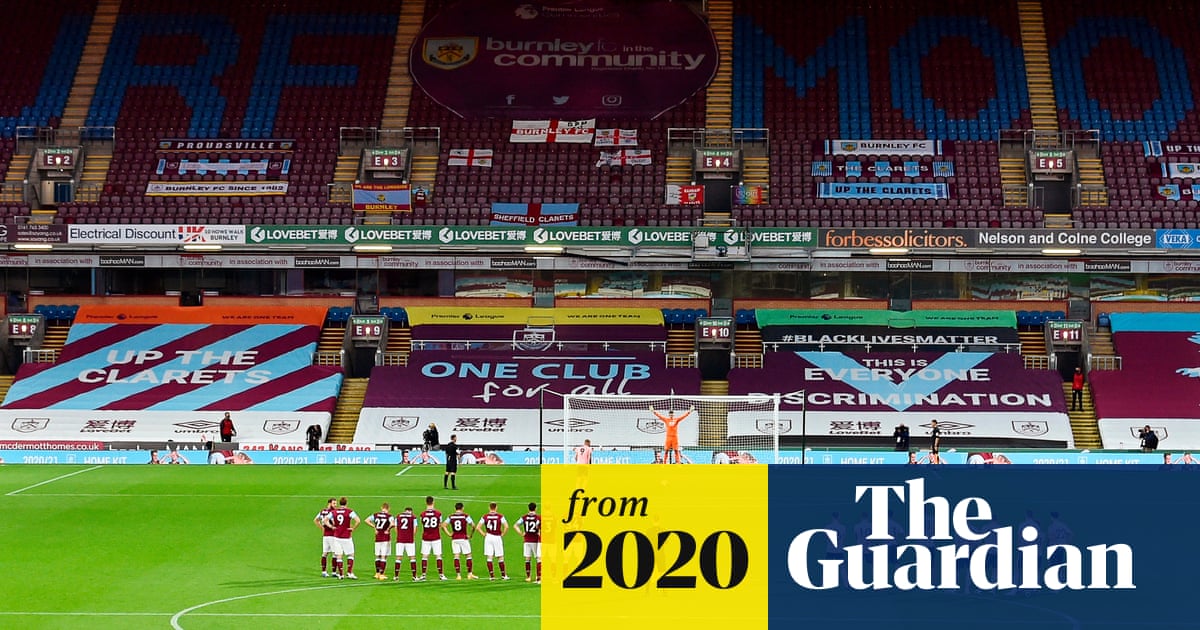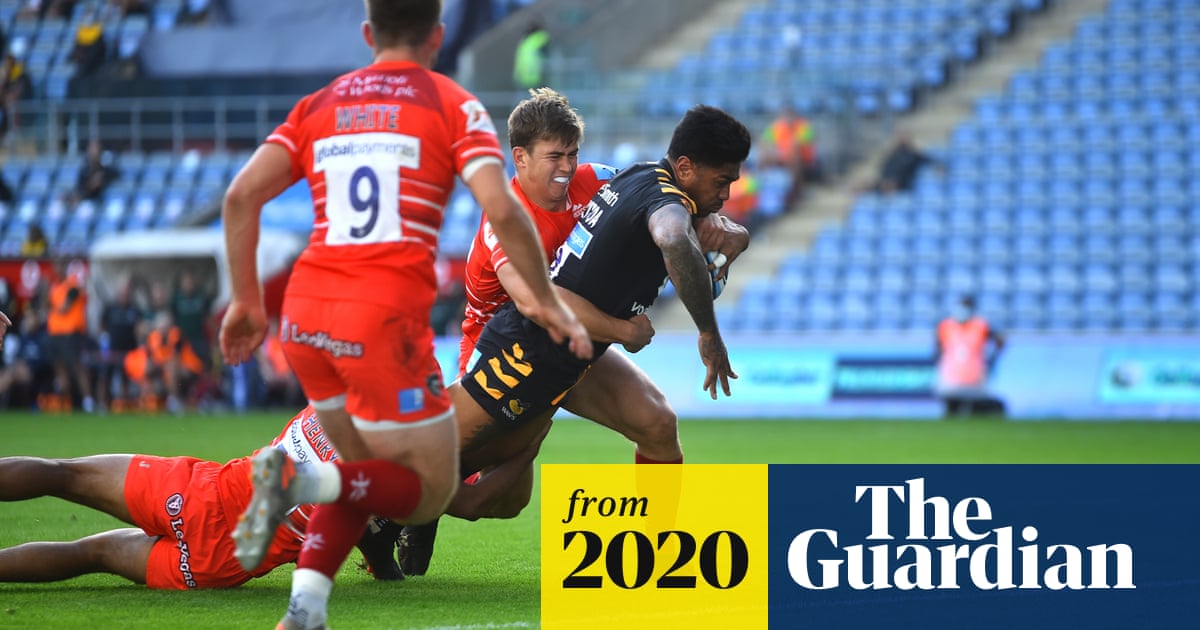Rugby Finances
-
Laporte.
Fraud investigation. To do with Montepllier and Goosen being paid lots to go farming for a year and not play for Racing for final year of contract. General salary cap shenangins and whether properly investigated.
The club had been accused of irregularities during the 2018/19, following an expose by L’Equippe and RMC. The LNR stated that the “parties are pleased that an amicable solution has been found and that it is allows us to work in the future in a peaceful atmosphere.”
The accusations against the club revolved around the signing of South African flyhalf Johan Goosen, and a number of other top players. A report had suggested that money paid sums to Goosen and other players via a shell company in South Africa, so that the majority of their salaries would not be counted towards the salary cap.
Laporte now stands accused of giving favourable treatment to Montpellier after it was revealed that a company he owns had signed an image rights contract with Mohed Altrad’s Altrad Group in early 2017, a deal he since pulled out of.
The anti-fraud squad will now grill Laporte.
-
Some rare good news for this thread. Crowds back at NPC games (except in Greater Auckland).
But tempered by coinciding with All Blacks being withdrawn (crazy IMO, should be flexible, people will be forgiving)
Shouldn't be hard for Taranaki to sell out their temporary athletics track home.
I will head along to the Wellington club finals though instead of the Friday night NPC game, as kid friendly time. Went last year with my kid and is one of the best atmospheres I've attended. Hope they get a cut of the hot dogs and chips van ....
-
@Machpants said in Rugby Finances:
UK Premiership are going down, as it appears that govt has shelved any further crowds at games - they were running pilot schemes, but the UK is on it’s way to Lockdown 2.0
Positioning themselves for a government bailout. Suddenly lot's of club chairmen in the news saying how vital crowds are and need stadiums opened up.
Pressure isn't really abut letting in the crowds, it's about saying you prevented us running our business, give us some bailout money.
-
Voila:
English rugby stands on the edge of a precipice after club and country announced they are seeking government bailouts to avoid financial ruin caused by new restrictions on fans attending matches.
The Rugby Football Union is forecasting losses totalling £106m as a result of measures designed to limit a second wave of coronavirus infections that will prevent Twickenham from hosting fans for up to six months.Chief executive Bill Sweeney has revealed a perilous financial outlook as a result of a £122m reduction in revenue for the forthcoming Autumn Nations Cup and £138m for the Six Nations.
The impact of these are losses of £46m and £60m respectively, forcing the world's richest union to request state aid. And the English top flight has followed suit, Premiership Rugby asking for a "rescue package" after warning of "irreparable damage to our clubs" by the absence of crowds for the foreseeable future.
The RFU and Premiership Rugby attended a meeting of major sports with Oliver Dowden, the Secretary of State for Digital, Culture, Media and Sport, immediately after Prime Minister Boris Johnson had announced the new restrictions.
Sweeney was present to outline the gravity of the situation at Twickenham and in a bleak statement, warned of the possible consequences if assistance is not provided.
"From the outset we have been clear that an autumn without crowds would leave us with little choice but to approach government for financial help. Unfortunately, we are now in that position," Sweeney said.
"Without support we are in danger of clubs at the heart of communities across England, as well as players and volunteers, disappearing forever."
Sweeney, who also revealed that the community game is facing a plunge in revenue of £86m, added: "Premiership and Championship Clubs will face significant financial hardship. Our community rugby clubs, many of which run grounds at the heart of their communities are under threat."
Premiership Rugby chief executive Darren Childs revealed what is at stake as the second wave of the coronavirus pandemic threatens financial oblivion across a number of sports.
"We look forward to working with Government on a rescue package for professional club rugby in England and we will continue to seek innovative ways to overcome these challenges to ensure Premiership Rugby and its clubs have a
future," Childs said.
Gloucester chief executive Lance Bradley offered a similarly grim outlook for the Premiership, even questioning whether its existing structure could withstand such losses.
"I don't want to sound over-dramatic but it can't be for six months if we want to have professional rugby survive in the format that we know," Bradley told the PA news agency.
"At Gloucester we had plans for when fans would come back and we planned for some to be back at the start of the new season and for more to be back come in January.
"It's a big problem for us not to have fans in grounds because it's about a third of our income. We can't just shut everything down for six months.
"If we're not allowed to have fans for an extended period, then some kind of financial support to overcome that would certainly help."
Bradley's view was echoed by Saracens director of rugby Mark McCall, who believes the impact of continuing to play behind closed doors will extend into the Test arena.
-
A sort of bailout wouldn't be unprecedented.
The RFL got a £16m government loan back at the end of April. Terms of the load weren't disclosed.
https://www.bbc.com/sport/rugby-league/52493621Here in NZ, back in June $4.6m relief package to pro sports in NZ. Of which $1.25m went to NZ Rugby.
-
@Bovidae said in Rugby Finances:
There are concerns about survival in football too, particularly clubs below Premier League level, so I expect this will have flow-on effects for other sports.
Yes, I'd reckon it is the political importance of lower league football possible failing will mean something will be done and that will mean RFU and PRL will be able to slip their cap in as well.
Macclesfield Town folded last week, with debts worth the same amount as Gareth Bale's weekly wage.
-
IRFU.
Also seeking some govt help. Although they are governed by 2 different govts.
PHILIP BROWNE, THE chief executive of the IRFU .....
Earlier today, Browne – along with leading administrators from the GAA and FAI – met with an Oireachtas committee on coronavirus as the sporting bodies seek a total of €70m to cope with the negative financial impact of coronavirus on Irish sport.
With games ongoing behind closed doors and health experts advising sporting bodies to limit attendances as sporting events have the potential to become ‘super spreaders’ of Covid-19, the three main sporting bodies have suffered financial hits.
So much so that Philip Browne, the chief executive of the IRFU, said that an attendance of 5,000 fans in the Aviva would actually cost the union money. He, along with his colleagues in the GAA and FAI, are hoping the Government would allow a one-metre separation, rather than the proposed two-metre separation – to exist in stadiums.
The reason being that – under current government guidelines – a two metre separation would allow for just 7,000 people in the Aviva whereas a one-metre separation would mean up to 18,000 fans could attend a game in the stadium.
“It (a one metre separation) is still not going to solve the (financial) problem entirely, but it will help,” Browne said, as he pointed out that an attendance of 5,000 fans in the stadium would actually end up as a cost for the IRFU, by the time expenses were taken into account.
“It costs us money to do that,” Browne said. “It achieves one objective in getting spectators into the ground, but it actually ends up costing us a significant amount of money to do that.”
Tom Ryan, director general of the GAA, said the association had lost €21 million so far in 2020 – on the back of the Coronavirus crisis, while Gary Owens, the FAI’s interim chief executive said that the return of fans to stadiums was a crucial part of their financial planning.
Browne went on to tell the Oireachtas Special Committee that the IRFU was “burning” through €5m a month.
“We put a stake in the sand in September that we would put our head above the parapet then, but we’ve moved it out to December,” he said.
“We need in December to see spectators coming back in 2021 and if not, we have to take actions that are frankly unpalatable.
“Unpalatable looks like something very different to what we’re doing at the moment.
“If we cannot generate revenues to support our activities then we will have to scale them back.
“The current projected position to the end of June 2021, showing a negative cash swing of almost €40m from a cash surplus of some €28m in June 2020, to borrowings of just over €10m, backed by union assets, is very serious and is being kept under constant review.
“If these projections were to materialise, the very existence of professional rugby on the island would be under significant threat in 2021.
“Our audited financial statements for the period to July 31, 2020, will show an actual record financial loss of more than €35m.
“We are facing an unprecedented cashflow crisis.”
At least the IRFU, being prudentially run, can ask with a straight face. But who would want to bail these guys out "coz of covid": https://www.forum.thesilverfern.com/assets/uploads/files/1554786376396-changes-in-debt-position.jpg
-
Interesting for Saracens. Championship, with no crowds, is not going to happen, the clubs can't afford to operate without gate takings - indeed one of the clubs has gone 100% amateur. And there will not be crowds for that season. So Farrell et al get no rugby apart from international? Or are Saracens going to get away, once again, with their blatant financial doping and get placed back into a ring fenced prem?
-
UK government ready to rescue up to eight sports facing financial black hole
*Bailout needed because of delay to return of fans
*Matchday revenue crucial to survival of clubs
Exclusive by Sean Ingle, Ben Fisher and Robert Kitson
Tue 22 Sep 2020 16.52 BST
26
Sport has been warned the pause in the return of crowds, which was announced by the government on Tuesday, could last throughout winter – and even until the start of April.
The government is drawing up plans for an urgent rescue package for as many as eight sports, after being warned numerous clubs face financial ruin because of the lack of gate receipts.
Senior figures from football, rugby union, cricket, horse racing and three other sports also met the culture secretary, Oliver Dowden, on Tuesday to tell him the situation is increasingly perilous.
While Dowden vowed to help, he also made it clear to the Premier League and other more financially stable organisations that they must do their bit by also helping clubs lower down the pyramid. However, the danger to sport was made clear:
• The Rugby Football Union warned it would see a reduction in revenue of £122m and that rugby clubs at the heart of communities across England were “in danger of disappearing for ever”.
• The Premier League reiterated its warning football was losing £100m a month – and said “the football economy” is unsustainable without fans.
• Scott Priestnall, chairman of National League Yeovil, said he feared “for clubs not just at our level but League One, League Two and maybe some in the Championship”.
• The British Horseracing Authority described the news as “a serious blow” and warned the racing industry “is now facing a severe threat” and the loss of millions of pounds.
The government is yet to indicate the scale of any bailout for elite sport. But while grants, loans and rate relief are all on the table, the Guardian understands it will be substantially less than the £1.57bn given to the arts in July. A separate £500m package to save grassroots facilities and clubs from closure is also being considered by the Treasury, which is said to be sceptical about its benefits. But insiders fear that without help around 20% of swimming pools and hundreds of local authority leisure centres could close – costing thousands of jobs, and resulting in a drop in participation.
Grassroots sport has also been hit by the application of the rule of six to all adult indoor team sports – which will affect basketball, netball and five-a-side football leagues. However, children will still be able to play those sports indoors.
The RFU chairman, Bill Sweeney, warned the government the lack of crowds in the autumn fixtures and 2021 Six Nations would cost the sport £106m and have severe consequences at all levels of the game.
“Premiership and Championship clubs will face significant financial hardship,” Sweeney said. “Our community rugby clubs are under threat. Without crowds and league games community rugby will lose an estimated £86m in revenue this season.”
The scale of the problem in club rugby was made clear by Tony Rowe, chief executive of Exeter, who said many teams were in an “absolutely desperate” predicament. “We’ve got to get bums on seats,” he told the Guardian. “Without revenue we can’t hang on for ever. We’ve been losing a million pounds a month since March and we’re a club who usually never lose money. You can’t keep doing that. If we can get people back in the ground, at least we’ll have something coming in.”
The Premier League expressed its disappointment at the lack of fans in stadiums, saying in a statement it was certain they would “be as safe or even safer than at any other public activity currently permitted”, adding: “Last season, Premier League clubs suffered £700m in losses and at present our national game is losing more than £100m per month. This is starting to have a devastating impact on clubs and their communities.”
The Premier League would not be drawn on whether it would take on board comments from the government to offer more financial support to clubs lower down the pyramid.
Frank Lampard, Chelsea’s manager, said the Premier League should step in to help out. “It’s important the Premier League as a collective looks at supporting the Football League, the leagues below and grassroots football,” he said. “Because that’s the base of why we’re all here.”
The Burnley manager, Sean Dyche, offered a dissenting view, saying the Premier League should not necessarily help. “If you are going to apply that rule of thumb, does that mean every hedge fund manager that is incredibly successful, are they going to filter that down to the hedge fund managers that are not so successful?”
The National League is expected to postpone the start of its season when it meets on Thursday amid huge concerns about how its clubs will cope without matchday revenue. The Yeovil chairman, Scott Priestnall, said: “I fear for sport. How is it meant to survive without supporters?”
The Rugby Football League is forecasting a significant six-figure loss, in excess of £250,000, because the Challenge Cup final on 17 October is now being played behind closed doors. There are also fears inside British Basketball League that some of its clubs will struggle to survive if they are unable to hold games with crowds. Its clubs are holding crisis talks on Wednesday.
Additional reporting by Aaron Bower and Greg Wood
-
@Machpants said in Rugby Finances:
Haivng seen Oz lose Qantas - what's the status with NZR? AIG gone as of the end of this year, right? That hole has not (will not due to Covid) be filled?
AIG sponsorship runs through until end of 2021.
-
@KiwiMurph said in Rugby Finances:
@Machpants said in Rugby Finances:
Haivng seen Oz lose Qantas - what's the status with NZR? AIG gone as of the end of this year, right? That hole has not (will not due to Covid) be filled?
AIG sponsorship runs through until end of 2021.
phew.
-
@Machpants said in Rugby Finances:
Haivng seen Oz lose Qantas - what's the status with NZR? AIG gone as of the end of this year, right? That hole has not (will not due to Covid) be filled?
You could say ARU jumped through hoops to please that sponsor, with the whole Folau thing.
But no way Qantas can continue shelling out.
Qantas will end its 30-year sponsorship of the Wallabies, worth about $5 million a year, and cease financial support for the national cricket and soccer teams as it desperately tries to save cash during the coronavirus crisis.
The airline said on Wednesday it would provide "in-kind support" to Cricket Australia and the Football Federation Australia, such as free flights and marketing, but would not pay any sponsorship fees for the next 12 months.
But its major partnership with the Wallabies and Rugby Australia, which dates back to 1990, will finish at the end of this year, leaving the national rugby side looking for a new major sponsor.
It is a major blow for Australian rugby, which is under significant financial pressure. While RA and Qantas would not confirm the value of the partnership, sources say it is worth $5 million a year in cash and contra.
The COVID-19 pandemic has forced Qantas to ground most of its fleet and push it to a $1.9 billion annual loss for the 2019/2020 financial year. The company has stood down 20,000 staff and announced almost 8000 redundancies.
-
Stephen Vaughan has warned Premiership clubs will have to make drastic cuts in a struggle for survival unless the government agrees to a compensation proposal. The proposal is being drawn up by English rugby’s elite who are facing the prospect of no matchday income until March and a combined loss of £70m.
Vaughan, the Wasps group chief executive, said that without financial assistance, following the decision to put the return of fans to sports grounds on hold indefinitely, his club would lose £500,000 a month and that all options would have to be on the table, including further wage cuts, to avoid closure.
“It is a very grim picture,” said Vaughan, who joined Wasps last year from Gloucester. “The clubs are united in our response to this and a paper is being prepared for the government to consider. If a vital income stream is cut off for months on end, the emphasis will be on owners to dig even deeper into their pockets.
“If they decide that they have had enough of throwing their money down the drain and there is no government support, it would make survival very hard. It would mean nothing was off the table in terms of action that would need to be taken.
“Wages have not been discussed, but those clubs who said they would review the cuts made earlier in the year in January, or later in the season, will have to decide whether that is feasible now. Everyone is in the same boat, which is why we are lobbying the government hard.”
Every club except Exeter was making losses before the pandemic struck but the investment from CVC, which at the end of 2018 bought a 27% stake in the Premiership, was making a difference. As well as losing gate income, and the money raised from the sale of food and drink at grounds as well as hospitality, the clubs face a drop in central income.
Premiership Rugby is in the second half of its player agreement with the Rugby Football Union and the level of payment is subject to the turnover of the governing body, which fears it could lose £60m this year if fans are not admitted to watch autumn internationals or next year’s Six Nations.
“We do not yet know what the new level will be, but any further drop in income will have an impact,” said Vaughan. “There is also concern about how sponsors will react to there being no spectators at grounds for potentially six months.” On Tuesday Qantas ended a 30-year association with Rugby Australia, saying it could not justify spending money on sport at a time when it was making drastic cuts.
Vaughan said: “No one wants to make further cuts to the wages of players, coaches and staff at clubs and it would be very difficult to do unless everyone agreed. The bottom line is what would you do to keep a club, some of which have been around for 150 years, going?
“You would have to make difficult decisions. The reality is that this is a global issue that is not going to go away any time soon. We are currently on a great run and are pushing for the play‑offs, but I would swap all of our wins to be able to have fans back at the Ricoh Arena now.”
Admittedly Wasps and Exeter are different from most other clubs in the league, with their hotel businesses (plus indoor arena in Wasps' case).
But, an organisation in a league where each club is facing on average a loss of 1/3 of its income stream (matchday revenue), and a further reduction in another of it's stream (RFU disbursements) and has so far only addressed this by reducing salaries by 25%. Is asking for a handout and "Wages have not been discussed". Just a little bit outrageous.
I mean, at best, all that Wasps could have done, with a 25% wage reduction, assuming no reduction in income (but of course there is reduction), is turned a £9.7m loss into a £6.8m loss.
E.g. their last FY results:
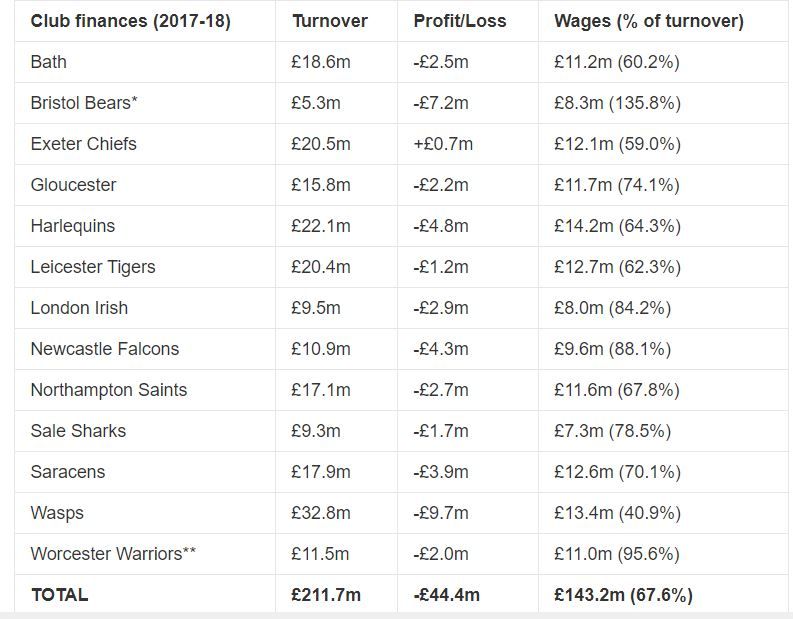
: https://www.therugbypaper.co.uk/featured-post/32558/a-record-44-4m-in-losses-premiership-club-figures-revealed/
